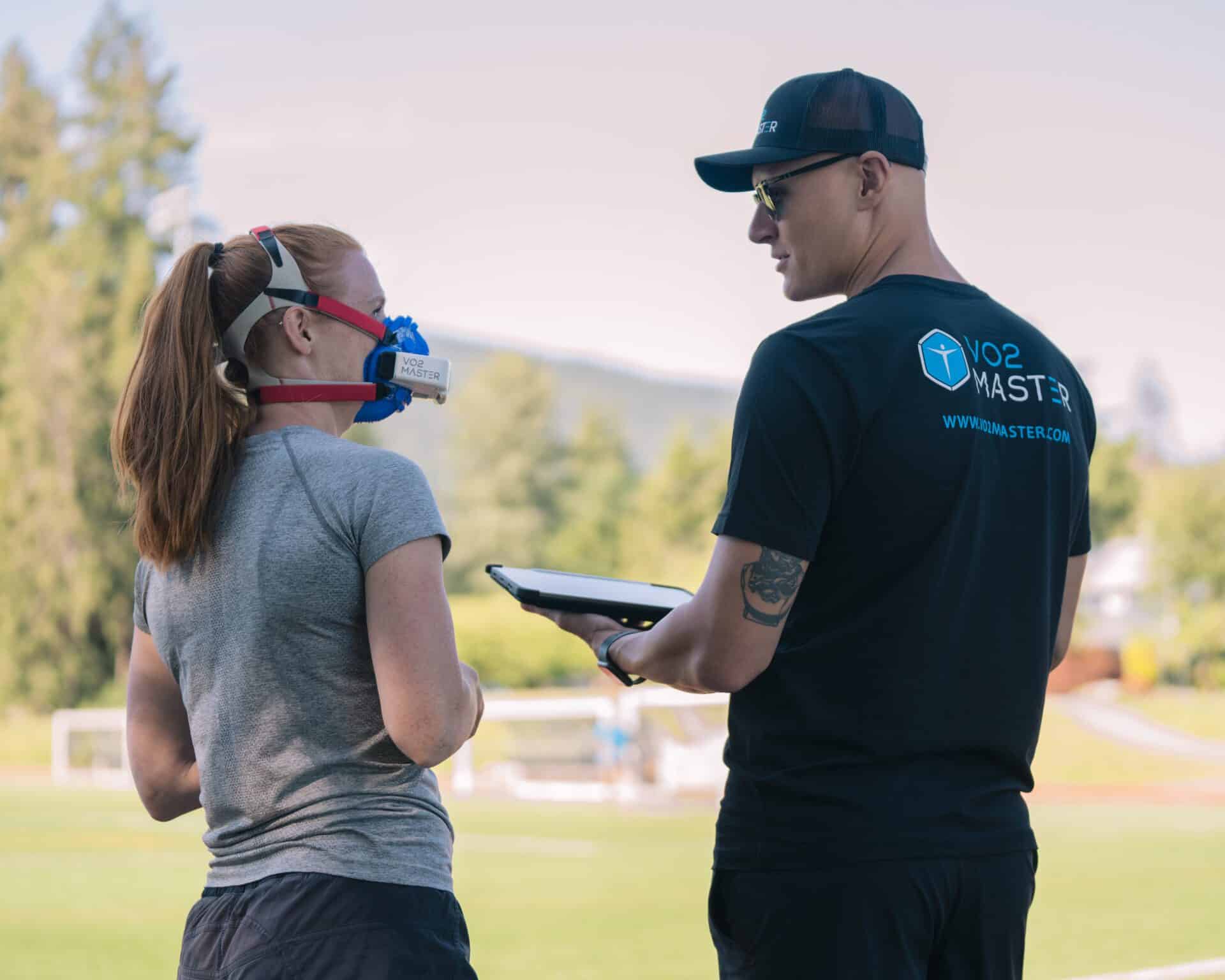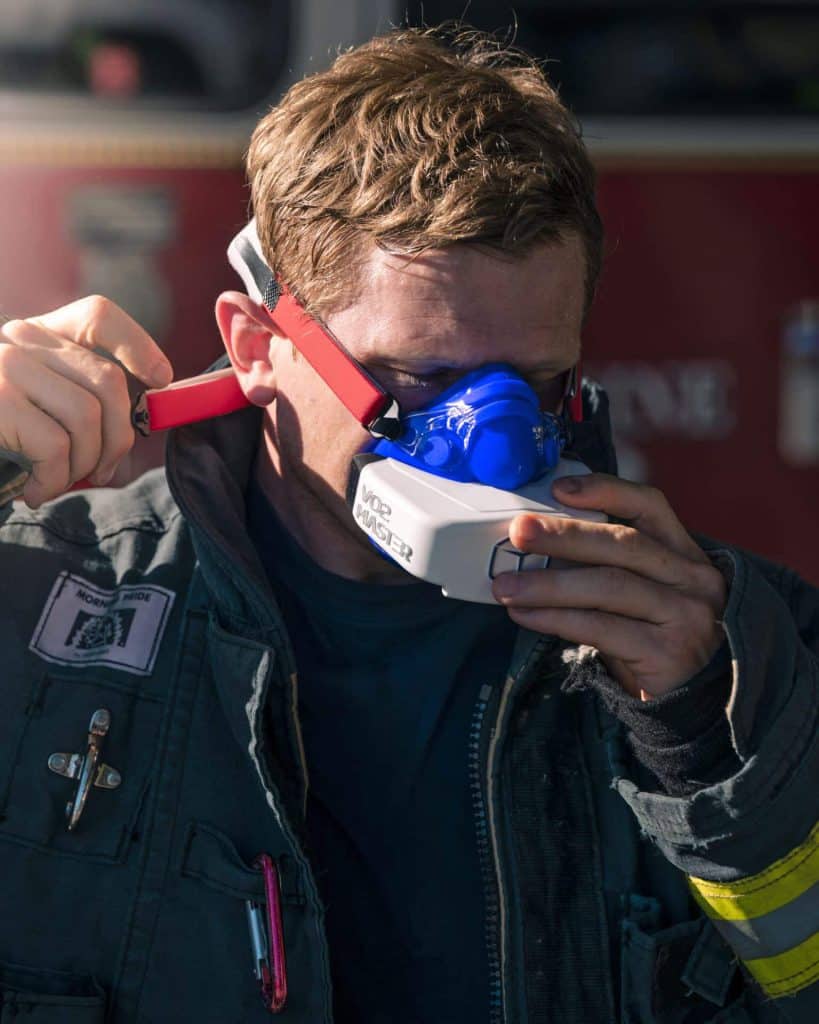The Ideal Duration and Intensity for a Short-Step Test
In this edition of the VO2 Master Education Series, performance coach Sean Seale chats with Dr. Andrew Sellars, Co-Founder of VO2 Master, about setting up the ideal duration and intensities for a short-step test. Read through the full details of their conversation below. Sean Seale: When should we use a short-step test? Dr. Sellars: IContinue reading "The Ideal Duration and Intensity for a Short-Step Test"

In this edition of the VO2 Master Education Series, performance coach Sean Seale chats with Dr. Andrew Sellars, Co-Founder of VO2 Master, about setting up the ideal duration and intensities for a short-step test.
Read through the full details of their conversation below.
Sean Seale: When should we use a short-step test?
Dr. Sellars: I think that the only two times that I would use a short-step test is:
One is if a new athlete does not have the endurance to handle a longer test and I’m really trying to pack it down into something that’s short and simple for them–to get a quick assessment of their physiology.
And the other reason, which is used fairly often both in the literature and in sports, is to look at maximal levels–the idea of keeping it short enough that people can get to a very high intensity, or the highest intensity possible, before they get too tired from the test itself.
How do you pick the right duration of each step?
It really does depend on how fit your athlete is, how high you need to take them, and how big a step you’re willing to put them through.
The shorter the step and the higher that wattage they need to go, they’re going to have to take fairly large increases in intensity. And those steps can cause sort of alarm phase reactions. Ideally, you’d avoid those kinds of physiologic alarms.
You want the athlete to move up fairly quickly without driving any alarm phases so that we can have a smooth ramp up, or smooth steps up. Get them to high intensity without creating any unnecessary reactions that throw off their physiology and throw off their reactions.
Let’s talk about the one-minute steps. How long should the test last?
Try not to go too long, but get enough steps that you have some data and give the body enough time to warm up. Most people sort of aim between 9-12 minutes for these kinds of tests.
Because most people are looking at maximal values, an athlete needs to be warmed up ahead of time. There are some protocols that have very clear and defined warmups and it’s important to remember if you’re looking at a specific protocol.
I know Hunter Allen and some of the work that’s been done by that group have very clear protocols that they use and some of the warm-up protocols were much longer than the tests themselves.
But follow the advice from the warmups and then aim for a test that’s 9-12 minutes.
And obviously, if you use longer steps, your test is going to last a little bit longer?
That’s the only downside to going long steps is the duration the athlete has to go.
There’s more information that can come out of those longer steps, but you may have athletes who can’t tolerate the longer step, especially if you’re trying to look towards maximal values.
If they’ve gone too long at the submaximal values, at a hard intensity, they may just be too tired to actually show you what they can do physically at the very high end.
How do you calibrate a short-step test? How do you determine the starting intensity and ending intensity for someone?
That does become very individualized and is a bit of a challenge.
I tend to start step tests at very low intensities because I’m interested in seeing what happens to the body as it warms up. The challenge is if you start too low in intensity, their good steps are going to have to be large enough that you get them up to that very high intensity in 9-12 minutes.
From a calibration point, you’re not going to be able to calibrate the athlete perfectly, but you should have some idea of where you’re going with the test.
If you have a professional-level cyclist, you know that they likely have very good data on what kind of wattage they can put out. And they’re going to put out wattages upwards of 400-500 watts—sometimes even higher for the sprinters. Starting at 100 watts at a very low intensity and knowing that you have to get up to some intensity 500 and higher, it’s going to have to be 50 watts or even 60 watts per step to get you there in 9-12 minutes.
The newer the athlete is or the newer they are to cycling or whatever sport you’re testing in, the smaller those increments will have to be to get them to their maximum. We’ve tested some people who are very new to running and whose maximum run speeds are less than 10km/hour. So, you can very easily get them in half-kilometre-an-hour increments and easily get them up to their fastest running pace in 9-12 minutes.
The calibration is going to really depend on the athlete that you have and what you predict to be the maximum intensity that you’re aiming for. Then, start them at a very low intensity and divide that by 9-12 to get your step test intensities.
